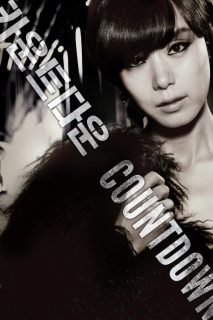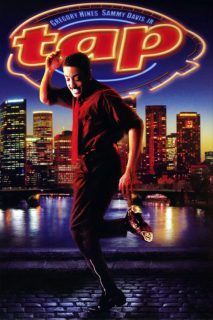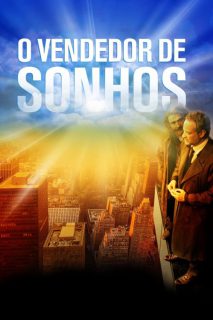
- Year: 2003
- Released: 11 Sep 2004
- Country: Japan, Taiwan
- Adwords: 4 wins & 5 nominations
- IMDb: https://www.imdb.com/title/tt0412596/
- Rotten Tomatoes: https://www.rottentomatoes.com/m/cafe_lumiere
- Metacritics: https://www.metacritic.com/movie/cafe-lumiere
- Available in: 720p, 1080p,
- Language: Japanese, English
- Genre: Drama
- Runtime: 108 min
- Writer: Hsiao-Hsien Hou, T’ien-wen Chu
- Director: Hsiao-Hsien Hou
- Cast: Yo Hitoto, Tadanobu Asano, Masato Hagiwara
- Keywords: japan, train, cafe, urban life,
 | 6.8/10 |
 | 80/100 |
 | 91% – Critics |
 | 77% – Audience |
Café Lumière Storyline
Shochiku Studio of Japan commissioned several directors to create films reflecting on the themes of Ozu Yasujiro on the centenary of the director’s birth. Here we find Inoue Yoko, an apparently single young woman who is pregnant, searching for a small cafe that was often visited by a Taiwanese composer whose life she is researching. She herself is back from Taiwan and receiving help from a book store clerk, but she first has to contend with the her own reality which includes her parents.
Café Lumière Play trailer
Café Lumière Photos



Café Lumière Torrents Download
| 720p | web | 948.93 MB | magnet:?xt=urn:btih:9E6DC1BA7F8F8DAA929CD816C7F9400D9ACC3BA5 | |
| 1080p | web | 1.72 GB | magnet:?xt=urn:btih:C1EF419D0FF19482CE651EE10F49386ABAB7A950 |
Café Lumière Subtitles Download
| Arabic | subtitle Cafe.Lumiere.2003.PROPER.DVDRip.XviD-iLS | |
| English | subtitle Café Lumière 2003 WEBRip |
Café Lumière Movie Reviews
Not a satisfactory Ozu homage, but Hou is always stylish
A girl who is pregnant is visited by her parents and may not know who the father is. Her main friend works in a bookstore and records train sounds as a hobby. For this viewer, “Café Lumière,” which had been long anticipated, was disappointing when finally seen. It didn’t leave very strong impression and a week later it had almost faded from the mind. It seems to me that the resemblance to Ozu, whom this was commissioned by the producer as a sort of homage to, is superficial indeed. Ozu can make you cry. This, despite its Ozu-like structure, leaves you feeling rather blank. Perhaps this is because it’s essentially about people avoiding real contact with each other.
That’s not the same as being reserved. In fact it’s extremely different. People who are shy and reserved, as Ozu’s characters tend to be, may very often care very intensely. The impression is that these people devised for Hou’s version of Japan just don’t ultimately seem to feel very much. If this is how things are now in Japan, too bad; but would Hou really know? He’s Chinese. He has even admitted in interviews that culturally he was a bit out of his depth in coming to Japana to make a film. Despite very assured style, the deadpan story has no pulse. This is more a perversion of than homage to the great Ozu. Another commentator has said Café Lumière “may be the film that Ozu would have made if he lived in the modern age.” It may be; but I don’t think so. And if it were, then it is as well that Ozu did not live in the modern age, because he would have ceased to be Ozu.
As I have said recently in another context, Hou doesn’t always hit it, but when he does he flies to the moon. Hou can’t make a movie without stylistic and visual elegance, and “Café Lumière,” with its cool tranquility and measured pace and its delicate light, has those qualities. But he didn’t make it to heaven this time. In the second part of his recent “Three Times,” he did: all the way to the moon. So he can still fly, but this conscientious, measured effort plods.
I’m that guy who doesn’t like Hou Hsiao-Hsien
Eh, I thought this was slightly above average for Hou. Which means I still didn’t care for it much, but I didn’t exactly dislike it, either. As far as the (non- or possibly anti-) story goes, it’s probably his slightest yet. A young woman is newly pregnant. She wanders around, rides the trains, hangs out with a friend, has half-heard conversations on a cell phone, eats, drinks milk, eats some more and generally avoids the issue of what’s in her belly. So, yes, it’s pretty dull. But Hou does capture an ambiance that is pleasant, at the very least. I have in the past likened Hou’s work to sitting on a bus and eavesdropping. Funny, as one of the main characters in this film enjoys recording ambient noises on passenger trains. At least in this film you get to hang around a pretty Japanese girl and Tadanobu Asano, star of such great Asian flicks as Ichi the Killer and Last Life in the Universe. I loved the last sequence and the final shot.
art film devoid of life
A Japanese movie with a French title, “Café Lumiere” is a desultory tale of a young pregnant woman and her friendship with a local bookstore proprietor. As the movie is almost militantly anti-narrative in its stance, there really isn’t much more one can provide in the way of helpful plot summary than that.
Director Hsiao-hsien Hou has opted for a Spartan style of film-making that hearkens back to such early Japanese masters as Yasujiro Ozu and Kenji Mizoguchi. Each scene consists of a single medium or long shot with no close-ups or edits whatsoever. The result is that we become so detached from the characters on screen that we find ourselves unengaged in their problems and their fates. And this turns out to be a particularly serious problem in this case because the spare screenplay offers us so little of interest to start with. The story consists mainly of Yoko wandering around the city or moping in her apartment as she goes about the tasks of her daily life. She rides on trains, entertains her visiting parents, spends infrequent moments with her storeowner friend – and that’s about it: no revelatory conversations, no insights into character, no point or purpose beyond the prosaic surface. Admittedly, some of the compositions are stunning and the style is intriguing and hypnotic at first, but it soon loses its charm as the tedium of the narrative (or non-narrative) takes over.
The acting is consistently understated and naturalistic, but in a movie in which everybody just looks preoccupied and pensive, there really isn’t much call for anything else.



